|
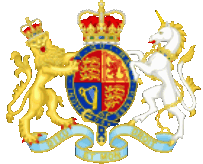
Organised crime is one of the gravest threats to
the UK's national security - blighting communities, ruining lives and costing the UK well over
£20
billion every year. Organised crime can feel distant from most peoples’ day to day lives, but it affects us all. From the sexual exploitation of children,
corruption in politics, to the smuggling of illegal firearms, cyber
crime, human trafficking and modern
slavery - serious and organised crime is everywhere.
The Serious Organized Crime and Police Act 2005 (c.15) (often abbreviated to SOCPA) is an Act of the Parliament of the
United Kingdom aimed primarily at creating the Serious Organised Crime Agency, it also significantly extended and simplified the powers of arrest of a constable and introduced restrictions on protests in the vicinity of the Palace of Westminster. It was introduced into the
House of Commons on 24 November 2004 and was passed by Parliament and given Royal Assent on 7 April 2005.
Measures to introduce a specific offence of "incitement to religious hatred" were included in early drafts of the Act, but then dropped so the bill would pass before the 2005 general election. The offence has since been created as the Racial and
Religious Hatred Act 2006.
The Serious Organised Crime and Police Act 2005 should be read in
conjunction with the Fraud Act 2006 and
the Proceeds of Crime Act 2002.

CONTACT
THE SERIOUS ORGANISED CRIME AGENCY
For general enquiries or to verify a person as an NCA officer:
Email: communication@nca.x.gsi.gov.uk
Telephone: 0370 496 7622 (available 24/7)
The postal address for NCA headquarters is:
Units 1 - 6 Citadel Place,
Tinworth Street
London SE11 5EF
To report non-urgent crime call your local police on 101. You can also report crime anonymously to Crimestoppers online or by calling 0800 555 111.
Website:
http://www.nationalcrimeagency.gov.uk/
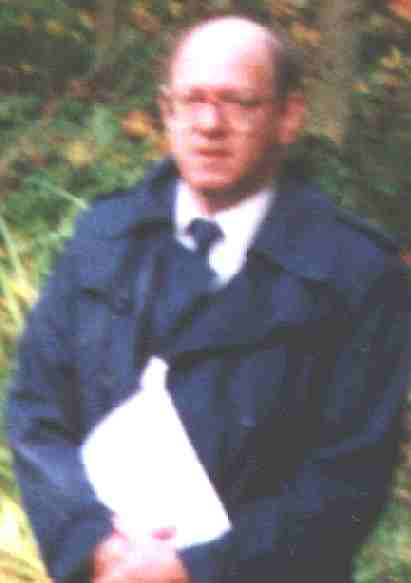



Victorio
Patrick Scarpa, Christine Nuttall, David Phillips & Charles (Charlie) Lant,
the most likely candidate as the controlling mind of the operation.
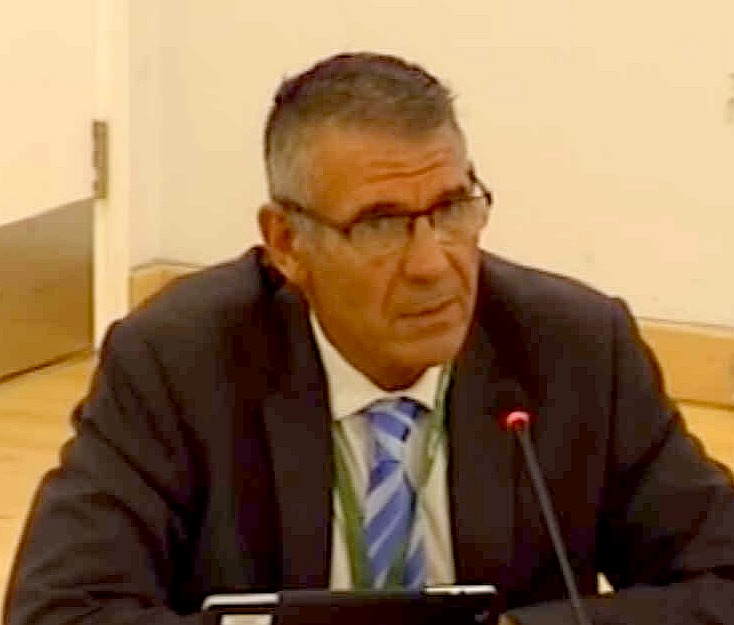

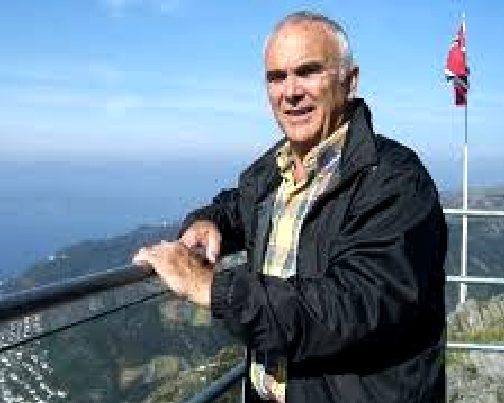
Kelvin
Williams, J. Douglas Moss and Ian M. Kay conclude the line up for the 'Malevolent
Seven.' We wonder if they have been on any holidays lately at the
expense of the public purse and did they take their wives with them? It
is rumored that just such an event has taken place.
THE
SERIOUS ORGANISED CRIME AND POLICE ACT 2005
Establishment of Serious Organised Crime Agency
(1) There shall be a body corporate to be known as the Serious Organised Crime Agency (“SOCA”).
(2) Schedule 1 makes provision about the constitution, members and staff of SOCA and other matters relating to it.
(3) Each of the following bodies shall cease to exist on such date as the Secretary of State appoints by
order —
(a) the National Criminal Intelligence Service and its Service Authority, and
(b) the National Crime Squad and its Service Authority.
2 Functions of SOCA as to serious organised crime
(1) SOCA has the functions of —
(a) preventing and detecting serious organised crime, and
(b) contributing to the reduction of such crime in other ways and to the mitigation of its consequences.
(2) SOCA's functions under subsection (1) are exercisable subject to subsections (3) to (5) (but subsection (3) does not apply to Scotland).
(3) If, in exercising its function under subsection (1)(a), SOCA becomes aware of conduct appearing to SOCA to involve serious or complex fraud, SOCA may thereafter exercise that function in relation to the fraud in question
only —
(a) with the agreement of the Director, or an authorised officer, of the Serious Fraud Office, or
(b) if the Serious Fraud Office declines to act in relation to it.
(4) If, in exercising its function under subsection (1)(a), SOCA becomes aware of conduct appearing to SOCA to involve revenue fraud, SOCA may thereafter exercise that function in relation to the fraud in question only with the agreement of the Commissioners.
(5) Before exercising its function under subsection (1)(b) in any way in relation to revenue fraud, SOCA must consult the Commissioners.
(6) The issue of whether SOCA's function under subsection (1)(a) continued to be exercisable in any circumstances within subsection (3) or (4) may not be raised in any criminal proceedings.
(7) In this section “revenue fraud” includes fraud relating to taxes, duties and national insurance contributions.
(8) In this Chapter “the Commissioners” means the Commissioners for Her Majesty's Revenue and Customs.
3 Functions of SOCA as to information relating to crime
(1) SOCA has the function of gathering, storing, analysing and disseminating information relevant
to —
(a) the prevention, detection, investigation or prosecution of offences, or
(b) the reduction of crime in other ways or the mitigation of its consequences.
(2) SOCA may disseminate such information to —
(a) police forces within subsection (3),
(b) special police forces,
(c) law enforcement agencies, or
(d) such other persons as it considers appropriate in connection with any of the matters mentioned in subsection (1)(a)

ROYAL
OPENING - The National Cyber Security Centre (NCSC) was officially opened by Her Majesty The Queen on February 14th 2017, accompanied by His Royal Highness The
Duke of
Edinburgh. The NCSC is part of GCHQ and will use the best data, skills and capabilities to make the UK the safest place in the world to live and work online.
5 SOCA's general powers
(1) SOCA has the general powers conferred by this section.
(2) SOCA may —
(a) institute criminal proceedings in England and Wales or Northern Ireland;
(b) at the request of the chief officer of a police force within section 3(3) or of a special police force, act in support of any activities of that force;
(c) at the request of any law enforcement agency, act in support of any activities of that agency;
(d) enter into other arrangements for co-operating with bodies or persons (in the United Kingdom or elsewhere) which it considers appropriate in connection with the exercise of any of SOCA's functions under section 2 or 3 or any activities within subsection (3).
(3) Despite the references to serious organised crime in section 2(1), SOCA may carry on activities in relation to other crime if they are carried on for the purposes of any of the functions conferred on SOCA by section 2 or 3.
(4) Subsection (3) does not affect the generality of section 3(1).
(5) SOCA may furnish such assistance as it considers appropriate in response to requests made by any government or other body exercising functions of a public nature in any country or territory outside the United Kingdom.
(6) Subsection (5) does not apply to any request for assistance which
—
(a) could be made under section 13 of the Crime (International Co-operation) Act 2003 (c. 32) (requests by overseas authorities to obtain evidence), and
(b) is not a request in relation to which SOCA has functions under that section by virtue of an order under section 27(2) of that Act.
(7) In this section “law enforcement agency” has the meaning given by section 3(4).
38 Prosecution of offences investigated by SOCA
(1) The Director of Revenue and Customs
Prosecutions —
(a) may institute and conduct criminal proceedings in England and Wales that arise out of a criminal investigation by SOCA relating to a designated offence, and
(b) must take over the conduct of criminal proceedings instituted by SOCA in England and Wales in respect of a designated offence.
(2) The Director of Revenue and Customs Prosecutions must provide such advice as he thinks appropriate, to such persons as he thinks appropriate, in relation
to —
(a) a criminal investigation by SOCA relating to a designated offence, or
(b) criminal proceedings instituted in England and Wales that arise out of such an investigation.
(3) The Director of Public Prosecutions —
(a) may institute and conduct criminal proceedings in England and Wales that arise out of a criminal investigation by SOCA relating to a non-designated offence, and
(b) must take over the conduct of criminal proceedings instituted by SOCA in England and Wales in respect of such an offence.
But paragraph (b) does not apply where the Director of the Serious Fraud Office has the conduct of the proceedings.
(4) The Director of Public Prosecutions must provide such advice as he thinks appropriate, to such persons as he thinks appropriate, in relation
to —
(a) a criminal investigation by SOCA relating to a non-designated offence, or
(b) criminal proceedings instituted in England and Wales that arise out of such an investigation.
(5) Sections 23 and 23A of the Prosecution of Offences Act 1985 (c. 23) (power to discontinue proceedings) apply (with any necessary modifications) to proceedings conducted by the Director of Revenue and Customs Prosecutions in accordance with this section as they apply to proceedings conducted by the Director of Public Prosecutions.
55 Complaints and misconduct
(1) Schedule 2 makes provision for, and in connection with, the operation in relation to SOCA of Part 2 of the Police Reform Act 2002 (c. 30) (which relates to complaints and misconduct).
(2) In the Police (Northern Ireland) Act 1998 (c. 32) —
(a) after section 60 insert —
“60ZASerious Organised Crime Agency
(1) An agreement for the establishment in relation to members of the staff of the Serious Organised Crime Agency of procedures corresponding or similar to any of those established by virtue of this Part may, with the approval of the Secretary of State, be made between the Ombudsman and the Agency.
(2) Where no such procedures are in force in relation to the Agency, the Secretary of State may by order establish such procedures.
(3) An agreement under this section may at any time be varied or terminated with the approval of the Secretary of State.
(4) Before making an order under this section the Secretary of State shall
consult —
(a) the Ombudsman; and
(b) the Agency.
(5) Nothing in any other statutory provision shall prevent the Agency from carrying into effect procedures established by virtue of this section.
60 Investigatory powers of DPP etc.
(1) This Chapter confers powers on —
(a) the Director of Public Prosecutions,
(b) the Director of Revenue and Customs Prosecutions, and
(c) the Lord Advocate,
in relation to the giving of disclosure notices in connection with the investigation of offences to which this Chapter applies.
(2) The Director of Public Prosecutions may, to such extent as he may determine, delegate the exercise of his powers under this Chapter to a Crown prosecutor.
(3) The Director of Revenue and Customs Prosecutions may, to such extent as he may determine, delegate the exercise of his powers under this Chapter to a Revenue and Customs Prosecutor.
(4) The Lord Advocate may, to such extent as he may determine, delegate the exercise of his powers under this Chapter to a procurator fiscal.
(5) In this Chapter “the Investigating Authority” means —
(a) the Director of Public Prosecutions,
(b) the Director of Revenue and Customs Prosecutions, or
(c) the Lord Advocate.
61 Offences to which this Chapter applies
(1) This Chapter applies to the following offences —
(a) any offence listed in Schedule 2 to the Proceeds of Crime Act 2002 (c. 29) (lifestyle offences: England and Wales);
(b) any offence listed in Schedule 4 to that Act (lifestyle offences: Scotland);
(c) any offence under sections 15 to 18 of the Terrorism Act 2000 (c. 11) (offences relating to fund-raising, money laundering etc.);
(d) any offence under section 170 of the Customs and Excise Management Act 1979 (c. 2) (fraudulent evasion of duty) or section 72 of the Value Added Tax Act 1994 (c. 23) (offences relating to VAT) which is a qualifying offence;
(e) any offence under section 17 of the Theft Act 1968 (c. 60) (false accounting), or any offence at common law of cheating in relation to the public revenue, which is a qualifying offence;
(f) any offence under section 1 of the Criminal Attempts Act 1981 (c. 47), or in Scotland at common law, of attempting to commit any offence in paragraph (c) or any offence in paragraph (d) or (e) which is a qualifying offence;
(g) any offence under section 1 of the Criminal Law Act 1977 (c. 45), or in Scotland at common law, of conspiracy to commit any offence in paragraph (c) or any offence in paragraph (d) or (e) which is a qualifying offence.
(2) For the purposes of subsection (1) an offence in paragraph (d) or (e) of that subsection is a qualifying offence if the Investigating Authority certifies that in his
opinion —
(a) in the case of an offence in paragraph (d) or an offence of cheating the public revenue, the offence involved or would have involved a loss, or potential loss, to the public revenue of an amount not less than £5,000;
(b) in the case of an offence under section 17 of the Theft Act 1968 (c. 60), the offence involved or would have involved a loss or gain, or potential loss or gain, of an amount not less than £5,000.
(3) A document purporting to be a certificate under subsection (2) is to be received in evidence and treated as such a certificate unless the contrary is proved.

Looking
happier in 2017 than she has during other state occasions, Queen
Elizabeth cracks a smile as her guides find something that she may have
said amusing. We like the blue outfit Maam.
66 Power to enter and seize
documents
(1) A justice of the peace may issue a warrant under this section if, on an information on oath laid by the Investigating Authority, he is
satisfied —
(a) that any of the conditions mentioned in subsection (2) is met in relation to any documents of a description specified in the information, and
(b) that the documents are on premises so specified.
(2) The conditions are —
(a) that a person has been required by a disclosure notice to produce the documents but has not done so;
(b) that it is not practicable to give a disclosure notice requiring their production;
(c) that giving such a notice might seriously prejudice the investigation of an offence to which this Chapter applies.
(3) A warrant under this section is a warrant authorising an appropriate person named in
it —
(a) to enter and search the premises, using such force as is reasonably necessary;
(b) to take possession of any documents appearing to be documents of a description specified in the information, or to take any other steps which appear to be necessary for preserving, or preventing interference with, any such documents;
(c) in the case of any such documents consisting of information recorded otherwise than in legible form, to take possession of any computer disk or other electronic storage device which appears to contain the information in question, or to take any other steps which appear to be necessary for preserving, or preventing interference with, that information;
(d) to take copies of or extracts from any documents or information falling within paragraph (b) or (c);
(e) to require any person on the premises to provide an explanation of any such documents or information or to state where any such documents or information may be found;
(f) to require any such person to give the appropriate person such assistance as he may reasonably require for the taking of copies or extracts as mentioned in paragraph (d).
(4) A person executing a warrant under this section may take other persons with him, if it appears to him to be necessary to do so.
(5) A warrant under this section must, if so required, be produced for inspection by the owner or occupier of the premises or anyone acting on his behalf.
(6) If the premises are unoccupied or the occupier is temporarily absent, a person entering the premises under the authority of a warrant under this section must leave the premises as effectively secured against trespassers as he found them.
(7) Where possession of any document or device is taken under this section—
(a) the document may be retained for so long as the Investigating Authority considers that it is necessary to retain it (rather than a copy of it) in connection with the investigation for the purposes of which the warrant was sought, or
(b) the device may be retained for so long as he considers that it is necessary to retain it in connection with that investigation,
as the case may be.
(8) If the Investigating Authority has reasonable grounds for believing—
(a) that any such document or device may have to be produced for the purposes of any legal proceedings, and
(b) that it might otherwise be unavailable for those purposes,
it may be retained until the proceedings are concluded.
(9) Nothing in this section authorises a person to take possession of, or make copies of or take extracts from, any document or information which, by virtue of section 64, could not be required to be produced or disclosed under section 62 or 63.
110 Powers of arrest
(1) For section 24 of PACE (arrest without warrant for arrestable offences)
substitute — “24Arrest without warrant: constables
(1) A constable may arrest without a warrant —
(a) anyone who is about to commit an offence;
(b) anyone who is in the act of committing an offence;
(c) anyone whom he has reasonable grounds for suspecting to be about to commit an offence;
(d) anyone whom he has reasonable grounds for suspecting to be committing an offence.
(2) If a constable has reasonable grounds for suspecting that an offence has been committed, he may arrest without a warrant anyone whom he has reasonable grounds to suspect of being guilty of it.
(3) If an offence has been committed, a constable may arrest without a
warrant —
(a) anyone who is guilty of the offence;
(b) anyone whom he has reasonable grounds for suspecting to be guilty of it.
(4) But the power of summary arrest conferred by subsection (1), (2) or (3) is exercisable only if the constable has reasonable grounds for believing that for any of the reasons mentioned in subsection (5) it is necessary to arrest the person in question.
(5) The reasons are —
(a) to enable the name of the person in question to be ascertained (in the case where the constable does not know, and cannot readily ascertain, the person's name, or has reasonable grounds for doubting whether a name given by the person as his name is his real name);
(b) correspondingly as regards the person's address;
(c) to prevent the person in question —
(i) causing physical injury to himself or any other person;
(ii) suffering physical injury;
(iii) causing loss of or damage to property;
(iv) committing an offence against public decency (subject to subsection (6)); or
(v) causing an unlawful obstruction of the highway;
(d) to protect a child or other vulnerable person from the person in question;
(e) to allow the prompt and effective investigation of the offence or of the conduct of the person in question;
(f) to prevent any prosecution for the offence from being hindered by the disappearance of the person in question.
(6) Subsection (5)(c)(iv) applies only where members of the public going about their normal business cannot reasonably be expected to avoid the person in question.
24AArrest without warrant: other persons
(1) A person other than a constable may arrest without a warrant —
(a) anyone who is in the act of committing an indictable offence;
(b) anyone whom he has reasonable grounds for suspecting to be committing an indictable offence.
(2) Where an indictable offence has been committed, a person other than a constable may arrest without a warrant—
(a) anyone who is guilty of the offence;
(b) anyone whom he has reasonable grounds for suspecting to be guilty of it.
(3) But the power of summary arrest conferred by subsection (1) or (2) is exercisable only if—
(a) the person making the arrest has reasonable grounds for believing that for any of the reasons mentioned in subsection (4) it is necessary to arrest the person in question; and
(b) it appears to the person making the arrest that it is not reasonably practicable for a constable to make it instead.
(4) The reasons are to prevent the person in question —
(a) causing physical injury to himself or any other person;
(b) suffering physical injury;
(c) causing loss of or damage to property; or
(d) making off before a constable can assume responsibility for him.”
(2) Section 25 of PACE (general arrest conditions) shall cease to have effect.
(3) In section 66 of PACE (codes of practice), in subsection (1)(a) —
(a) omit “or” at the end of sub-paragraph (i),
(b) at the end of sub-paragraph (ii) insert “or
(iii) to arrest a person;”
(4) The sections 24 and 24A of PACE substituted by subsection (1) are to have effect in relation to any offence whenever committed.
USING
AN AUTHORITY TO GENERATE A FINANCIAL LOSS OR GAIN = ORGANISED CRIME
The "proceeds" of crime ( "gain" or a "loss") is defined to consist of a gain or a loss in money or property (including intangible property),
and can be temporary or permanent. A "gain" could be construed as gaining by keeping their existing possessions, not just by obtaining new ones, and loss included losses of expected
acquisitions or loss of opportunity, as well as losses of already-held
property if the objective of the guilty council if to devalue a property
as may be defined by the open market value, to benefit a third party or
favoured developer, until such time as property transfer or acquisition,
when all of the blockers being applied (unlawfully/illegally) by the
perpetrating council will suddenly be lifted so that the new owner(s)
might reap a huge uplift in value.
One
such case in question is and has been the long-term oppression of value
of The Old Steam House in Herstmonceux.
Council officers used their positions of trust in a manner to keep these
premises without any recognised beneficial use - by denying the history
attaching to the buildings - where several officers and maybe even a few
of the members of the Wealden
District Council, worked together (a conspiracy) to bury the
history, in the hope that the former owner would give up his
conservation agenda and sell.
This
is an extraordinary case where Wealden officers appear to have worked
with the Sussex Police and other agencies to keep this property without
a recognised use, to benefit the enjoyment or use of neighboring
properties. Loss may also be defined as loss of opportunity. In this
case officers of the council were instructed to bury the genuine history
attaching to the property by lying to inspectors and judges various as
to the importance of the generating buildings in a local, national and
international context.

Section
10 extract of a Consent Order in Case No: SD16 of 2003, in the
Eastbourne County Court. This is an Agreement between Nelson Kruschandl
and Wealden District Council, that Mr Kruschandl alleges
this council have breached concerning recognition of and the future of
Herstmonceux
Museum. Certain documents have been provided to us so that we can
say to you that these documents are genuine.
Fraud
is any statement or action that deceives another person, and in so doing
causes a loss to the victim. Fraud, is also the failure to do something
that is required in a position of authority - such as failing to seek
advice from the County Archaeologist and English Heritage in accordance
with Government Circulars. In this case it is alleged that Wealden only
put forward one side of an argument, and that they failed to seek the
proper assurances from the experts, as per Government guidance. This is
of course a crucial omission
on the part of those officers involved in the preparations of: 1. An enforcement
report to the Members 2. Prior to service of an Enforcement Notice, and
3. An appeal where an Inspector will be making a decision and needs
accurate facts on the table in order to make a decision that is safe. If
the facts upon which a decision is based are incorrect (false or have
been crafted) then the decision reached is ultra vires (invalid).

Consider
then paragraph 17 of the Decision Letter from R P Dannreuther in 1987.
In this paragraph the Inspector says that: "the foundation of a
previous building do not merit special attention." This is a
crucial error on the part of Dannreuther, because he has been persuaded
that the building he is looking at is not the original generating
building, but a building of "corrugated metal construction"
built over foundations from another building that has no archaeological
merit. This would never have happened if Wealden had done their duty and
consulted the experts. Whether or not this was deliberate is irrelevant,
as officers of the Court they were obliged to follow the correct
procedure. Not to do so is both improprietous and maladministration -
but more importantly, deprived the appellant of his right to a fair
hearing under Article 6 - thus is also
a human rights violation - that travels back in time if a Council fail
to correct any decision or data entry that is erroneous and carries
forward that which is now a violation under the Human Rights Act 1998.

Consider
now paragraph 20, where Inspector Dannreuther says: The building itself,
because of its materials and construction is an unattractive feature in
the rural scene." Here again, the Inspector has erred in fact,
because he has incorrectly assumed that the corrugated metal is the
construction method. Whereas, the building is of timber construction
(like many other barn conversions) and was merely sheathed in corrugated
metal during WWII hostilities as a fire precaution. That metal covering
has now gone save one small section under repair. That the Inspector was
a Navy man living in Hastings and a near neighbour was in the Royal
Marines and also a resident of Hastings (or nearby) is another matter
that may go some way to explaining why this Inspector was so easily led
astray - as in he wanted to believe what he was told where it was to the
advantage of an ex-services chum.
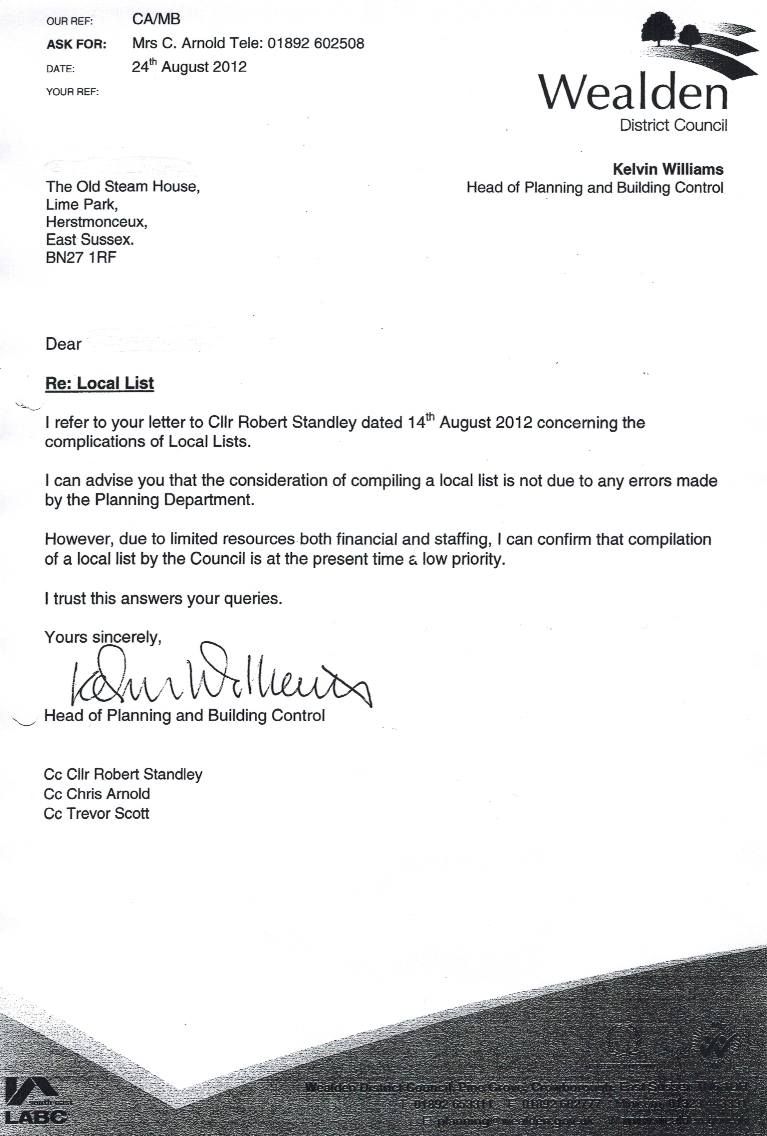
One
way of hiding a fraud, is to do nothing that might reveal that fraud,
such as to compile a list of local building of interest, when one knows
that they have obtained a decision by what is now defined as a statutory
fraud. Perpetuating known incorrect decisions to cause a person loss,
brings the offence from 1986 into frame for prosecution in 2014.
The
above picture is of Victorio
Patrick Scarpa over 10 years ago, also those of Christine
Nuttall & David Phillips. David
Phillips was still working for WDC as of 2014 and Doug
Moss is believed to still be in evidence in 2017. Phillips was the enforcement
officer working with Vic Scrapa concerning the alleged ongoing malicious
prosecution.
This
involved the fraudulent use of Copyright photographs taken by Moss, then
returned to the copyright owner under the terms of a written Agreement,
signed by Mr Moss. The problem with that statement by Moss is that he
lied. He retained a copy of the copyright photographs in violation of the
Patents, Designs and Copyright Act. Worse, he then provided copies of the
pictures that he held illegally to his chums in the legal department for
Phillips to be able to swear a Witness Statement that led the Court to
believe that the pictures were taken more recently on another site visit.
This was another lie to compound the lie that Moss had made in faking the
return of the copyright photographs.
Lest
you do not know how serious this is, this was a conspiracy to pervert the
course of justice - and guess what? The Sussex Police were in on it,
because the refused to investigate the allegations of the Petitioners, all
of which had serious complaints of a similar nature.
Lord
Richard Newton chaired a panel to hear the allegations and agreed with
the Petitioners that the complaints were of a criminal nature. Would you
believe that of 12 complainants, not one was contacted by Sussex Police to
take a statement or obtain supporting evidence. It gets worse. The police
gave Wealden's officers blank headed paper to write what they wanted the
Sussex Police to say. Talk about conspiracy to pervert the course of
justice. This is organised crime gone mad.
How many
other officers might have been involved, or know enough to be able to
blow the whistle? We know Christine Nuttall and Vic
Scarpa were the solicitors preparing papers for this council for this
case and we know that Trevor
Abbott and Trever
Scott were also in the loop. The fact that none of these officers has
denied any of the above in over 10 years is an admission that these facts
are correct.
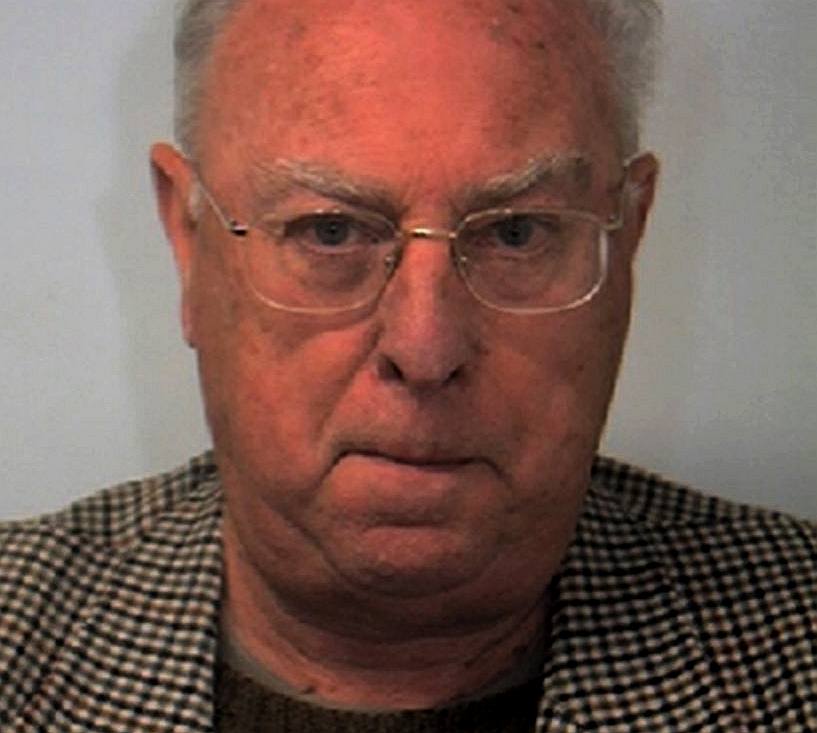
THE
GUARDIAN 3 FEBRUARY 2017 - Former Sheffield council official jailed for sexual assault
with the Council ‘deeply sorry’ after Roger Dodds, 81, is jailed for 16 years for abusing five people in the city over 20 years ago.
Sheffield city council has said it is “deeply sorry” after a former education official was jailed for 16 years for forcing teenagers to engage in sex acts to get grant payments. Roger Dodds, 81, was jailed on Friday after admitting indecently assaulting five people – one boy aged under 14 and four men aged 16 and over – from the 1970s to the 90s.
Dodds allegedly lured one victim by promising a meeting with Sebastian Coe, the Olympic medal-winning athlete whom he had said he knew, but the encounter never happened.
The council, which also came under fire for the Rotherham child abuse scandal, has been accused of moving Dodds to a position working with schools when complaints were made by his colleagues in the 1980s. Council officials not only knew about his behaviour but failed to report his activities to police and gave him early retirement with an enhanced pension, the
BBC reported.
Kenny Dale, who was abused by Dodds in the early 1990s and has waived his right to anonymity, told the BBC: “I was the victim of a horrible man and the council are to blame for that.”
Dodds is also alleged to have abused colleagues while working for the council’s education department between 1953 and 1993. In the 1970s he was responsible for providing grants to college and university students. The court heard he had used his position to abuse teenagers, forcing students to engage in sexual acts in order to get grant payments.
Dodds’ victims described how his abusive behaviour was well known at the council. They told a BBC investigation how he used his position dealing with student grants to gain access to young people and was investigated in the 1980s and 1990s with no apparent consequences.
In the 1980s he was investigated by the council following complaints from colleagues but was moved to a different post, involving work with schools. Further allegations in 1993 led to a second council investigation, after which Dodds was allowed to take an early retirement package with an enhanced pension.
A police investigation in 2008 did not result in any charges. One victim
is quoted as saying to the BBC: “I was the victim of a really horrible man. The council are so responsible. I even think at times the council are more responsible than he was. They allowed it to happen. Everyone knew. Everyone in the council knew but they chose to do nothing about it.”
Another said there must be other victims who had not yet come forward. He said: “We are just the tip of the iceberg.”
In a statement after the sentencing, the council said it was “deeply sorry” and would never “defend the indefensible”. Jayne Ludlam, the council’s executive director for children, young people and families, said: “We welcome the fact that today Roger Dodds has finally been brought to justice, after so many years. Our thoughts go out to his victims, whose bravery in coming forward has resulted in Dodds’ conviction and subsequent sentencing.
“We are deeply sorry that Dodds committed these offences while working at Sheffield city council decades ago. We are glad to see that, finally, such cases of historic abuse are coming before the courts, justice is being done, and victims are having their voices heard. Despite the fact that this happened more than a quarter of a century ago, we have accepted responsibility and would never defend the indefensible.”
The council said they launched an investigation in 2008 after a complaint of abuse was made to South Yorkshire police. Ludlam said: “By 2008 major changes had already occurred in policies, practices and procedures, both at the council and in wider society, but we needed to know if there was anything more that we could learn. This independent report made recommendations, all of which have been implemented fully.
“We tackle abuse head on, provide care and support to victims, and do everything we can to ensure perpetrators are brought to justice. We urge all victims of sexual abuse to come forward as soon as possible so they can get the support they need and offenders can be brought to justice.”
DC Stephen Howson, investigating officer at South Yorkshire police, said: “Today marks the culmination of a lengthy police investigation into Dodds’
sexual abuse of multiple victims, which spanned the 1970s to 1990s. Our inquiry began in 2014, after we received information from one victim who bravely reported sexual abuse to the NSPCC. We launched an investigation, which led to the discovery of other victims of Dodds’ sexual offending.
“I hope the positive result at court today encourages other victims of sexual abuse to come forward and talk to someone. We will always investigate reports of this nature and will do whatever we can to bring perpetrators of this crime before the courts.
“If there are other victims out there who are yet to come forward, please know that we are here to listen and support you.”
THE
UNTOUCHABLES - There is no statute of limitations that would prevent
these conspirators from standing trial. That much has been established in
umpteen high profile sexual cases involving historic allegations, one of
which involved Jimmy Saville, who died before he could stand trial and another Roger Dodds of Sheffield City
Council reported by the BBC and The
Guardian. There are hundreds more examples. Why should council
officials not be investigated for fraud and what amounts to serious
organised crimes? We need the equivalent of Elliot Ness and his team of FBI
investigators in the UK, only now in time.


LINKS
& REFERENCE
https://www.ncsc.gov.uk/gallery/her-majesty-queen-official-opening-ncsc
https://www.theguardian.com/uk-news/2017/feb/03/former-sheffield-council-worker-roger-dodds-jailed-for-sexual-assault
Legislation
UK Organised Crime and Police Act 2005
Legislation
UK Fraud Act 2006
Wikipedia
Fraud_Act_2006
http://www.nationalcrimeagency.gov.uk/
http://www.legislation.gov.uk/ukpga/2005/15/contents
http://www.legislation.gov.uk/ukpga/2006/35/contents
http://en.wikipedia.org/wiki/Fraud_Act_2006
|
















